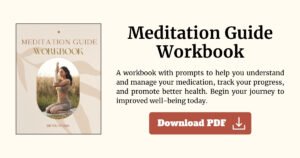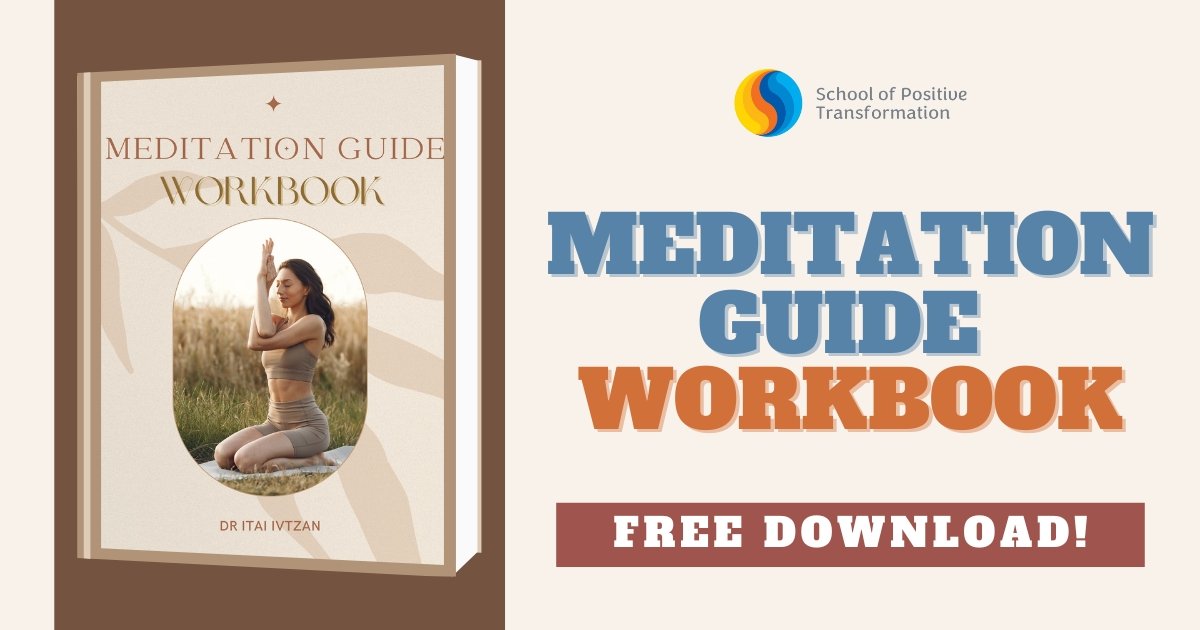How to Get Better Sleep with Meditation
Better sleep with meditation is crucial to living a life of well-being. It’s not always the easiest to accomplish, though. Doctors recommend at least 8 hours of sleep at night to improve mood and physical health. Doesn’t that sound nice? You may be thinking that it’s easier said than done. But what if I told you that there is a way to get better sleep at night? Here’s how.
Practice mindful meditation. Mindfulness is a relaxation technique increasingly used today. It involves deep breathing, staying in the moment, and living without judgment. Meditation is an aspect of mindfulness. It lowers heart rate, lowers blood pressure, and increases melatonin in our bodies. All of these are connected to a good night’s sleep. You might be familiar with mindful practices, but let’s learn more about meditation.
But before you continue you might like to consider our free worksheet on exploring “Meditation Guide“. Please download this worksheet here.
How to practice meditation for a good night’s sleep
- Get into a quiet room. This can be away from distractions, television, and other people.
- Set aside electronics. Turn your phone on silent, turn off the television, and step away from the computer.
- Dim the lights. Our eyes are sensitive to lights at night. Turning off or dimming the lights set our minds on sleep.
- Now breathe. Inhale slowly, exhale slowly. Practice with steady, deep breathing. Breathing relaxes our body, our mind, and releases tension.
- Allow thoughts to drift into your mind, but don’t let them linger. Let go of each thought as it comes into your mind. Sometimes I like to think of a river. Every thought is on a leaf that’s floating along. We won’t stop the leaf as it floats by. We watch it, acknowledge it’s there, and let it continue to flow.
- Refocus on your breathing now that the thoughts have passed.
- Repeat the process of breathing for 10-20 minutes, or until you feel your body is relaxed.
Extra tips to try
- Consider investing in a noise machine. These sounds can be helpful for shifting auditory focus. You can carry over your now-peaceful mind into a deep sleep. Common sounds include raindrops, storms, and the ocean.
- Go straight from meditation into bed. Don’t pick up your phone after meditating. You are in a relaxed state, and electronics may throw you off.
- Repeat the breathing process if you still can’t sleep.
- Develop a routine. Train your body to meditate before sleep. Your body learns your routine. Over time, you may find it easier to relax.
Set a reminder close to the time you get ready for bed. Stick with it. Most importantly, trust the process and be patient with yourself. You will sleep better soon and be on your way to living well.
When it comes to better sleep with meditation the most important thing to get started is making an effort to meditate and to get quiet before you try to sleep.
If you’re ready to improve your sleep and enhance your well-being through meditation, download our free ‘Meditation Guide Workbook’ and start your journey to better rest tonight.






